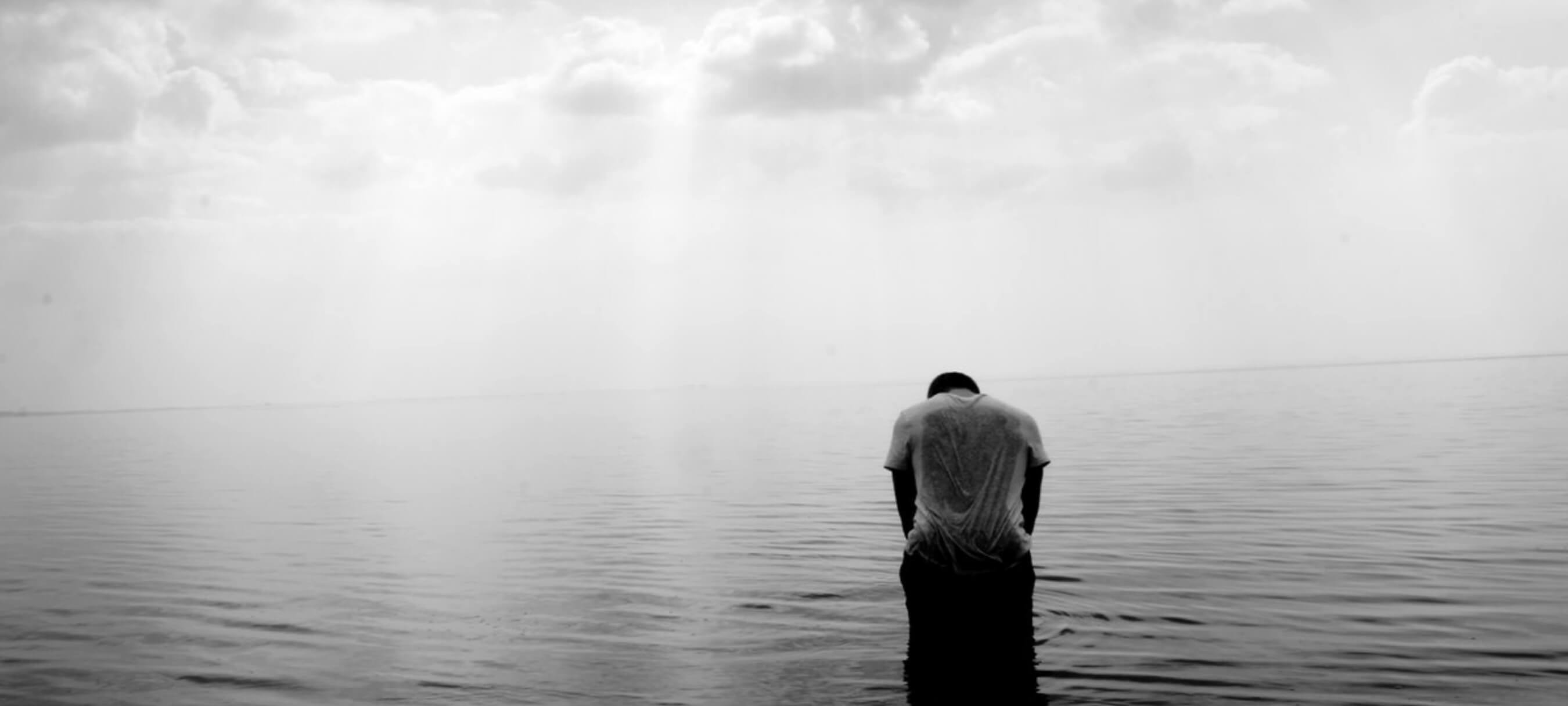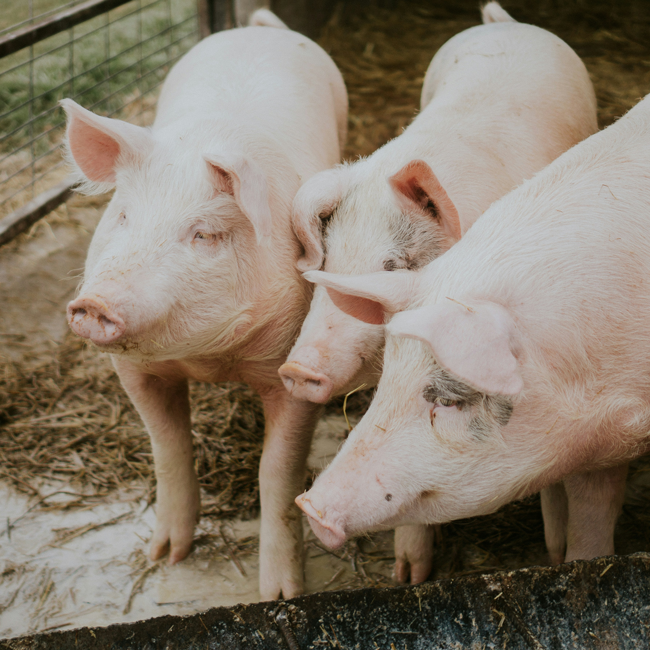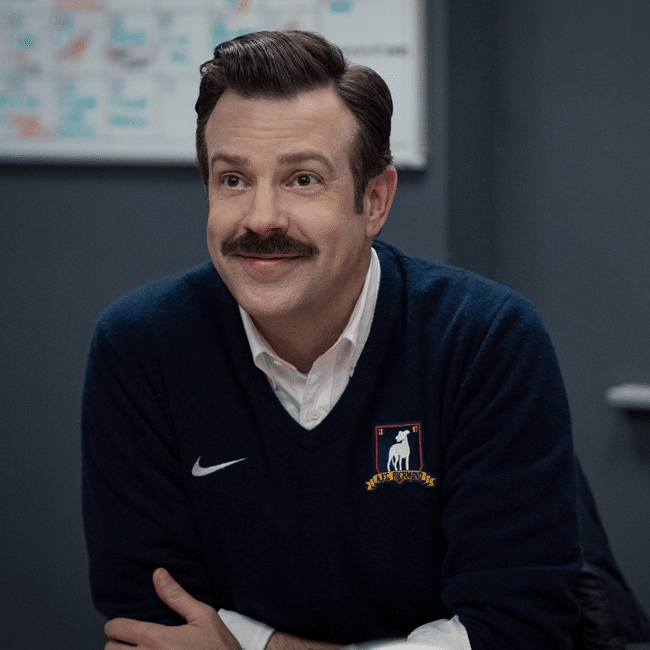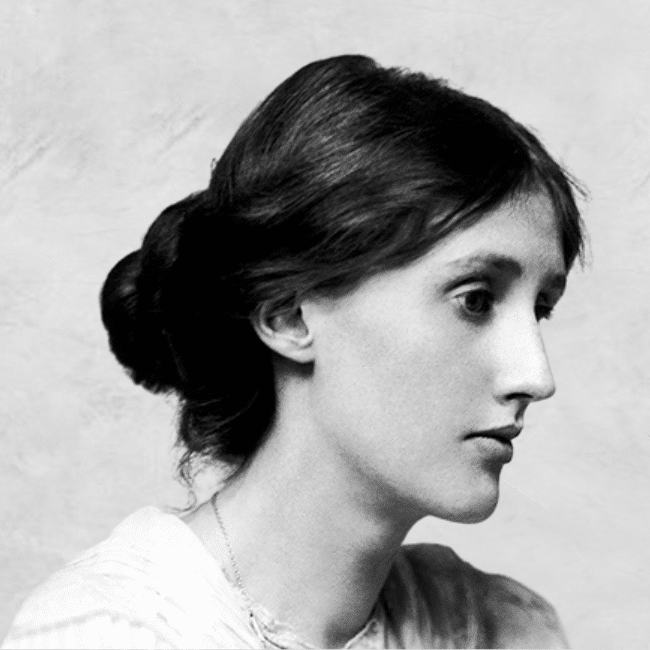Ethics Explainer: Dirty Hands

Ethics Explainer: Dirty Hands
ExplainerBusiness + LeadershipPolitics + Human Rights
BY The Ethics Centre 29 MAR 2016
The problem of dirty hands refers to situations where a person is asked to violate their deepest held ethical principles for the sake of some greater good.
The problem of dirty hands is usually seen only as an issue for political leaders. Ordinary people are typically not responsible for serious enough decisions to justify getting their hands ‘dirty’. Imagine a political leader who refuses to do what is necessary to advance the common good – what would we think of them?
Michael Walzer steps in
This was the question philosopher Michael Walzer asked when he discussed dirty hands, and another philosopher, Max Weber, had asked before him.
Walzer asks us to imagine a politician who is elected in a country that has been devastated by civil war, and who campaigned on policies of peace, reconciliation and an opposition to torture. Immediately after this politician is elected, he is asked to authorise the torture of a terrorist. The terrorist has hidden bombs throughout apartments in the city which will explode in the next 24 hours. Should the politician authorise the torture in the hope the information provided by the terrorist might save lives?
Finding common ground
This is a pretty common ethical dilemma, and different ethical theories will give different answers. Deontologists will mostly refuse, taking the ‘absolutist’ position that torture is an attack on human dignity and therefore always wrong. Utilitarians will probably see the torture as the action leading to the best outcomes and argue it is the right course of action.
What makes dirty hands different is it treats each of these arguments seriously. It accepts torture might always be wrong, but also that the stakes are so high it might also be the right thing to do. So, the political leader might have a duty to do the wrong thing – but what they are required to do is still wrong. As Walzer says, “The notion of dirty hands derives from an effort to refuse ‘absolutism’ without denying the reality of the moral dilemma”.
The paradox of dirty hands – that the right thing to do is also wrong – poses a challenge to political leaders. Are they willing to accept the possibility they might have to get their hands dirty and be held responsible for it? Walzer believes the moral politician is one who has dirty hands, acknowledges it, and is destroyed by it (because of feelings of guilt, punishment and so on): “it is by his dirty hands that we know him”.
Note that we’re not talking about corruption here where politicians get their hands dirty for their own selfish reasons, like fraudulent reelection or profit. What we’re talking about is when a politician might be obliged to violate their deepest personal values or the ethical creeds of their community in order to achieve some higher good, and how the politician should feel about having done so.
A remorseful politician?
Walzer believes politicians should feel wracked with guilt and seek forgiveness (and even demand punishment) in response to having dirtied their hands. Other thinkers disagree, notably Niccolo Machiavelli. He was also aware political leaders would sometimes have to do ‘what’s necessary’ for the public good. But even if those actions would be rejected by private ethics, he didn’t think decision makers should feel guilty about it.
Machiavelli felt indecision, hesitation, or squeamishness in the face of doing what’s necessary wasn’t a sign of a good or virtuous political leader – it was a sign they weren’t cut out for the job. Under this notion, the good political leader won’t just accept getting their hands dirty, they’ll do it whenever necessary without batting an eyelid.
Ethics in your inbox.
Get the latest inspiration, intelligence, events & more.
By signing up you agree to our privacy policy
You might be interested in…
Opinion + Analysis
Politics + Human Rights
Is the right to die about rights or consequences?
Explainer
Business + Leadership, Politics + Human Rights
Ethics Explainer: Liberalism
Opinion + Analysis
Business + Leadership, Health + Wellbeing, Society + Culture
Ethical concerns in sport: How to solve the crisis
Opinion + Analysis
Politics + Human Rights
The erosion of public trust
BY The Ethics Centre
The Ethics Centre is a not-for-profit organisation developing innovative programs, services and experiences, designed to bring ethics to the centre of professional and personal life.
Ethics Explainer: Double-Effect Theory

Double-effect theory recognises that a course of action might have a variety of ethical effects, some ‘good’ and some ‘bad’.
It can be seen as a way of balancing consequentialist and deontological approaches to ethics.
According to the theory, an action with both good and bad effects may be ethical as long as:
- Only the good consequences are intended (we don’t want the bad effects to occur, they’re just inescapable, even if they can be foreseen).
- The good done by the action outweighs the harm it inflicts.
- The bad effect is not the means by which the good effect occurs (we can’t do evil to bring about good – the good and bad consequences have to occur simultaneously).
- The act we are performing is not unethical for some other reason (for example, an attack on human dignity).
- We seek to minimise, if possible, the unintended and inadvertent harm that we cause.
Double-effect is best explained through the classic thought experiment: the Trolley problem.
Imagine a runaway train carriage is hurtling down the tracks toward five railroad workers. The workers are wearing earmuffs and unable to hear the carriage approaching. You have no way of warning them. However, you do have access to a lever which will divert the train onto a side-track on which only one person is working. Should you pull the lever and kill the one man to save five lives?
Take a moment to think about what you would do and your reasons for doing it. Now, consider this alternative.
The train is still hurtling toward the five workers but this time there’s no lever. Instead, you’re a lightweight person standing on a bridge above the railroad. Next to you is a very large man who would be heavy enough to stop the train. You could push the man onto the tracks and stop the train, but it would kill the heavy man. Should you push him off the bridge?
Again, think about what you would do and why you would do it.
Did you say ‘yes’ in the first scenario and ‘no’ in the second? That’s the most common response, but why? After all, in each case you’re killing one person to save five. According to many consequentialists that would be the right thing to do. By refusing to push the man off the bridge, are we being inconsistent?
Double-effect theory provides a way of consistently explaining the difference in our responses.
In the first case, our intention is to save five lives. An unintended, foreseeable consequence of pulling the lever is the death of one worker. But because the stakes are sufficiently high, our intended act (pulling a lever to redirect a train) isn’t intrinsically wrong. The good consequences outweigh the bad. The negative outcomes are side-effects of our good action, and so, we are permitted to pull the lever.
In the second case, the death of the heavy man is not a side-effect. Rather, it is the means (pushing the man off the bridge to stop the train) by which we achieve our goal (saving the five men). The negative outcomes are not unavoidable side-effects that occur at the same time as the good deed. It is causally prior to and directly linked to the good outcome.
This fact has ethical significance because it changes the structure of the action.
Instead of ‘saving lives whilst unavoidably causing someone to die’, it is a case of ‘killing one person deliberately in order to save five’. In the lever scenario, we don’t need the one worker to die in order to save the five. In the latter, we need the heavy man to die. Which means when we push him, we are intentionally killing him.
Double-effect is used in a range of different contexts. In medical ethics it can be used to explain why it would be ethical for a pro-life pregnant woman to take life-saving medicine even if it would likely kill her unborn child (unintended side-effect). It also explains the actions of doctors who increase the dose of opiates to end pain – even though they know that the dosage will end the patient’s life.
In military ethics it explains how an air strike which causes some unavoidable ‘collateral damage’ (the death or injury of non-combatants) might still be permissible – assuming it meets the criteria described above and involves the proportionate and discriminate use of force.
Ethics in your inbox.
Get the latest inspiration, intelligence, events & more.
By signing up you agree to our privacy policy
You might be interested in…
Opinion + Analysis
Politics + Human Rights, Relationships
To deal with this crisis, we need to talk about ethics, not economics
Explainer
Relationships
Ethics Explainer: Perfection
Opinion + Analysis
Relationships, Climate + Environment
Blindness and seeing
Opinion + Analysis
Relationships, Society + Culture
Beyond cynicism: The deeper ethical message of Ted Lasso
BY The Ethics Centre
The Ethics Centre is a not-for-profit organisation developing innovative programs, services and experiences, designed to bring ethics to the centre of professional and personal life.
“Animal rights should trump human interests” – what’s the debate?

“Animal rights should trump human interests” – what’s the debate?
Opinion + AnalysisClimate + EnvironmentRelationships
BY The Ethics Centre 22 MAR 2016
Are the ways humans subject animals to our own needs and wants justified?
Humans regularly impose our own demands on the animal world, whether it’s eating meat, scientific testing, keeping pets, sport, entertainment or protecting ourselves. But is it reasonable and ethical to do so?
Humans and animals
We often talk about humans and animals as though they are two separate categories of being. But aren’t humans just another kind of animal?
Many would say “no”, claiming humans have greater moral value than other animals. Humans possess the ability to use reason while animals act only on instinct, they say. This ability to think this way is held up as the key factor that makes humans uniquely worthy of protection and having greater moral value than animals.
“Animals are not self-conscious and are there merely as means to an end. That end is man.” – Immanuel Kant
Others argue that this is “speciesism” because it shows an unjustifiable bias for human beings. To prove this, they might point to cases where a particular animal shows more reason than a particular human being – for example, a chimpanzee might show more rational thought than a person in a coma. If we don’t grant greater moral value to the animal in these cases, it shows that our beliefs are prejudicial.
Some will go further and suggest that reason is not relevant to questions of moral value, because it measures the value of animals against human standards. In determining how a creature should be treated, philosopher Jeremy Bentham wrote, “… the question is not ‘Can they reason?’, nor ‘Can they talk?’, but ‘Can they suffer?’”
So in determining whether animal rights should trump human interests, we first need to figure out how we measure the value of animals and humans.
Rights and interests
What are rights and how do they correspond to interests? Generally speaking, you have a right when you are entitled to do something or prevent someone else from doing something to you. If humans have the right to free speech, this is because they are entitled to speak freely without anyone stopping them. The right protects an activity or status you are entitled to.
Rights come in a range of forms – natural, moral, legal and so on – but violating someone’s right is always a serious ethical matter.
“Animals are my friends. I don’t eat my friends.” – George Bernard Shaw
Interests are broader than rights and less serious from an ethical perspective. We have an interest in something when we have something to gain or lose by its success or failure. Humans have interests in a range of different projects because our lives are diverse. We have interests in art, medical research, education, leisure, health…
When we ask whether animal rights should trump human interests, we are asking a few questions. Do animals have rights? What are they? And if animals do have rights, are they more or less important than the interests of humans? We know human rights will always trump human interests, but what about animal rights?
Animal rights vs animal welfare
A crucial point in this debate is understanding the difference between animal rights and animal welfare. Animal rights advocates believe animals deserve rights to prevent them from being treated in certain ways. The exploitation of animals who have rights is, they say, always morally wrong – just like it would be for a human.
Animal welfare advocates, on the other hand, believe using animals can be either ethical or, in practice, unavoidable. These people aim to reduce any suffering inflicted on animals, but don’t seek to end altogether what others regard as exploitative practices.
As one widely used quote puts it, “Animal rights advocates are campaigning for no cages, while animal welfarists are campaigning for bigger cages”.
Are they mutually exclusive? What does taking a welfarist approach say about the moral value of animals?
‘Animal rights should trump human interests’ took place on 3 May 2016 at the City Recital Hall in Sydney.
Ethics in your inbox.
Get the latest inspiration, intelligence, events & more.
By signing up you agree to our privacy policy
You might be interested in…
Opinion + Analysis
Health + Wellbeing, Relationships
It’s easy to ignore the people we can’t see
Explainer
Relationships
Ethics Explainer: Respect
Opinion + Analysis
Relationships
Would you kill one to save five? How ethical dilemmas strengthen our moral muscle
Explainer
Relationships
Ethics Explainer: Plato’s Cave
BY The Ethics Centre
The Ethics Centre is a not-for-profit organisation developing innovative programs, services and experiences, designed to bring ethics to the centre of professional and personal life.
‘Eye in the Sky’ and drone warfare

‘Eye in the Sky’ and drone warfare
Opinion + AnalysisHealth + WellbeingPolitics + Human Rights
BY The Ethics Centre 18 MAR 2016
Warning – general plot spoilers to follow.
Collateral damage
Eye in the Sky begins as a joint British and US surveillance operation against known terrorists in Nairobi. During the operation, it becomes clear a terrorist attack is imminent, so the goals shift from surveillance to seek and destroy.
Moments before firing on the compound, drone pilots Steve Watts (Aaron Paul) and Carrie Gershon (Phoebe Fox) see a young girl setting up a bread stand near the target. Is her life acceptable collateral damage if her death saves many more people?
In military ethics, the question of collateral damage is a central point of discussion. The principle of ‘non-combatant immunity’ requires no civilian be intentionally targeted, but it doesn’t follow from this that all civilian casualties are unethical.
Most scholars and some Eye in the Sky characters, such as Colonel Katherine Powell (Helen Mirren), accept even foreseeable casualties can be justified under certain conditions – for instance, if the attack is necessary, the military benefits outweigh the negative side effects and all reasonable measures have been taken to avoid civilian casualties.
Risk-free warfare
The military and ethical advantages of drone strikes are obvious. By operating remotely, we prevent the risk of our military men and women being physically harmed. Drone strikes are also becoming increasingly precise and surveillance resources mean collateral damage can be minimised.
However, the damage radius of a missile strike drastically exceeds most infantry weapons – meaning the tools used by drones are often less discriminate than soldiers on the ground carrying rifles. If collateral damage is only justified when reasonable measures have been taken to reduce the risk to civilians, is drone warfare morally justified, or does it simply shift the risk away from our war fighters to the civilian population? The key question here is what counts as a reasonable measure – how much are we permitted to reduce the risk to our own troops?
Eye in the Sky forces us to confront the ethical complexity of war.
Reducing risk can also have consequences for the morale of soldiers. Christian Enemark, for example, suggests that drone warfare marks “the end of courage”. He wonders in what sense we can call drone pilots ‘warriors’ at all.
The risk-free nature of a drone strike means that he or she requires none of the courage that for millennia has distinguished the warrior from all other kinds of killers.
How then should drone operators be regarded? Are these grounded aviators merely technicians of death, at best deserving only admiration for their competent application of technical skills? If not, by what measure can they be reasonably compared to warriors?
Moral costs of killing
Throughout the film, military commanders Catherine Powell and Frank Benson (Alan Rickman) make a compelling consequentialist argument for killing the terrorists despite the fact it will kill the innocent girl. The suicide bombers, if allowed to escape, are likely to kill dozens of innocent people. If the cost of stopping them is one life, the ‘moral maths’ seems to check out.
Ultimately it is the pilot, Steve Watts, who has to take the shot. If he fires, it is by his hand a girl will die. This knowledge carries a serious ethical and psychological toll, even if he thinks it was the right thing to do.
There is evidence suggesting drone pilots suffer from Post Traumatic Stress Disorder (PTSD) and other forms of trauma at the same rates as pilots of manned aircraft. This can arise even if they haven’t killed any civilians. Drone pilots not only kill their targets, they observe them for weeks beforehand, coming to know their targets’ habits, families and communities. This means they humanise their targets in a way many manned pilots do not – and this too has psychological implications.
Who is responsible?
Modern military ethics insist all warriors have a moral obligation to refuse illegal or unethical orders. This sits in contrast to older approaches, by which soldiers had an absolute duty to obey. St Augustine, an early writer on the ethics of war, called soldiers “swords in the hand” of their commanders.
In a sense, drone pilots are treated in the same way. In Eye in the Sky, a huge number of senior decision-makers debate whether or not to take the shot. However, as Powell laments, “no one wants to take responsibility for pulling the trigger”. Who is responsible? The pilot who has to press the button? The highest authority in the ‘kill chain’? Or the terrorists for putting everyone in this position to begin with?
Ethics in your inbox.
Get the latest inspiration, intelligence, events & more.
By signing up you agree to our privacy policy
You might be interested in…
Big thinker
Politics + Human Rights, Relationships
Big Thinker: Mary Wollstonecraft
Opinion + Analysis
Politics + Human Rights, Society + Culture
On policing protest
Opinion + Analysis
Politics + Human Rights
The erosion of public trust
Opinion + Analysis
Health + Wellbeing, Society + Culture
Alpha dogs and the toughness trap: How we can redefine modern masculinity
BY The Ethics Centre
The Ethics Centre is a not-for-profit organisation developing innovative programs, services and experiences, designed to bring ethics to the centre of professional and personal life.
Ethics Explainer: Naturalistic Fallacy

Ethics Explainer: Naturalistic Fallacy
Opinion + AnalysisHealth + WellbeingRelationships
BY The Ethics Centre 15 MAR 2016
The naturalistic fallacy is an informal logical fallacy which argues that if something is ‘natural’ it must be good. It is closely related to the is/ought fallacy – when someone tries to infer what ‘ought’ to be done from what ‘is’.
The is/ought fallacy is when statements of fact (or ‘is’) jump to statements of value (or ‘ought’), without explanation. First discussed by Scottish philosopher, David Hume, he observed a range of different arguments where writers would be using the terms ‘is’ and ‘is not’ and suddenly, start saying ‘ought’ and ‘ought not’.
For Hume, it was inconceivable that philosophers could jump from ‘is’ to ‘ought’ without showing how the two concepts were connected. What were their justifications?
If this seems weird, consider the following example where someone might say:
- It is true that smoking is harmful to your health.
- Therefore, you ought not to smoke.
The claim that you ‘ought’ not to smoke is not just saying it would be unhealthy for you to smoke. It says it would be unethical. Why? Lots of ‘unhealthy’ things are perfectly ethical. The assumption that facts lead us directly to value claims is what makes the is/ought argument a fallacy.
As it is, the argument above is unsound – much more is needed. Hume thought no matter what you add to the argument, it would be impossible to make the leap from ‘is’ to ‘ought’ because ‘is’ is based on evidence (facts) and ‘ought’ is always a matter of reason (at best) and opinion or prejudice (at worst).
Later, another philosopher named G.E. Moore coined the term naturalistic fallacy. He said arguments that used nature, or natural terms like ‘pleasant’, ‘satisfying’ or ‘healthy’ to make ethical claims, were unsound.
The naturalistic fallacy looks like this:
- Breastfeeding is the natural way to feed children.
- Therefore, mothers ought to breastfeed their children and ought not to use baby formula (because it is unnatural).
This is a fallacy. We act against nature all the time – with vaccinations, electricity, medicine – many of which are ethical. Lots of things that are natural are good, but not all unnatural things are unethical. This is what the naturalistic fallacy argues.
Philosophers still debate this issue. For example, G. E. Moore believed in moral realism – that some things are objectively ‘good’ or ‘bad’, ‘right’ or ‘wrong’. This suggests there might be ‘ethical facts’ from which we can make value claims and which are different from ordinary facts. But that’s a whole new topic of discussion.
Ethics in your inbox.
Get the latest inspiration, intelligence, events & more.
By signing up you agree to our privacy policy
You might be interested in…
Opinion + Analysis
Business + Leadership, Health + Wellbeing
Is your workplace turning into a cult?
Opinion + Analysis
Relationships
The wonders, woes, and wipeouts of weddings
Opinion + Analysis
Relationships
Ask an ethicist: How much should politics influence my dating decisions?
Opinion + Analysis
Relationships
Praying for Paris doesn’t make you racist
BY The Ethics Centre
The Ethics Centre is a not-for-profit organisation developing innovative programs, services and experiences, designed to bring ethics to the centre of professional and personal life.
Do Australia’s adoption policies act in the best interests of children?

Do Australia’s adoption policies act in the best interests of children?
Opinion + AnalysisPolitics + Human RightsRelationships
BY Jane Hunt The Ethics Centre 14 MAR 2016
During the last year, I have listened and talked with practitioners, policy makers, adoptees, adoptive parents, children and young people in care, and birth families.
I have heard of the best and worst of human beings. My heart has constricted hearing about the profound harm some have experienced, and it has swelled in joy at the love that human beings can have for each other.
Research shows unequivocally that multiple placements have a negative impact on children.
Adoption in Australia has become fraught in all aspects – politics, policy and practice. It is a complex social issue that presents ethical and moral dilemmas for Government, the NGOs working with vulnerable and at-risk children, and for the broader community. It is complex and nuanced, with no clear response that will work in all cases. And it is highly emotionally charged.
In Australia, there are more than 43,000 children in ‘out of home care’. These children are identified as being ‘at risk’ and cannot remain in the care of their biological parents. They have been removed by child protection practitioners and, depending on the child’s circumstances, have been placed in the care of extended family, or with a guardian, or in short-term foster care.
Once children have been removed, the efforts of the child protection workers and other support services are framed to support the birth parents and to help them to reunify with their children. And this is where one of many ethical dilemmas emerges for the practitioners, policy makers and legislators.
How many opportunities should biological parents be given to demonstrate they are able keep their children safe and parent them? What level of support and services should they receive? And in the meantime, how long should a child stay in temporary care? How many placements is it tolerable for a child to experience?
These are difficult decisions for practitioners to make – each child’s situation is different. One practitioner described weighing up whether to return a child to their birth family against the risk of harm to the child as one of his hardest challenges. Having worked overseas, he believed that in Australia, the scales have tipped toward ‘restoration’ with birth families at all costs. This is not appropriately counter-balanced with an assessment of the risk of harm to children in the process.
Adoption in Australia has become fraught in all aspects – politics, policy and practice.
Compounding the situation is the problem of the availability and quality of foster carers able to care for vulnerable children. One practitioner in a regional town told me of a situation where she had to make a decision not to remove a child from a harmful situation because they did not have an appropriate foster carer available. The fact the child remained in an abusive family environment weighed heavily on the practitioner’s conscience.
Adoption, child protection and out of home care policy and legislation are founded on the assumption that decisions must be made in the ‘best interests of the child’. There is, however, no universally agreed upon definition of what this means.
Foster care is, by nature, temporary. There is always the possibility for the child that their relationship with their carers will end. This means some children experience multiple placements in foster care.
Sometimes the reasons for a change of placement are compelling – to be nearer their school, with siblings or nearer extended family members. However, research shows unequivocally that multiple placements have a negative impact on children.
Lack of security and attachment can have profound impacts on development. I’ve been told that multiple moves teach children that adults ‘come and go’ and cannot be trusted – a view corroborated by some young people in foster care who report feeling they ‘don’t belong’ anywhere.
Even the ‘Permanent Care Orders’ preferred in Victoria, which enable a child to live with a family until they are 18, fall short of providing a child or young person with the psychological and legal security of a family forever.
Why in Australia do we continue to provide a system that fails to meet children’s long term needs?
At the heart of this discussion lies a paralysing ethical dilemma – when a decision needs to be made to remove a child from their biological parents due to harm, neglect or abuse or when it’s not been successful, whose rights should be protected?
The right of the parent to keep their children, or the rights of the children to the conditions that will help them feel safe, secure and loved? Whose pain takes precedence? The parents’ loss and grief or the child’s trauma and pain?
The trauma caused by the historical practices of forced and closed adoptions has made many practitioners and politicians highly attuned to the needs of birth families. We need to learn from the profound hurt and trauma inflicted on many women who were coerced into relinquishing their children.
Adoption is not a panacea – it won’t be in the best interest of every child in long-term care.
The voices of adult adoptees who experienced secrecy, stigma and shame around their adoptions are deserving of understanding and compassion.
But considering or advocating for children to have access to adoption does not deny or ignore these experiences. It is important to learn from the impact of past practices and develop open adoption practices ensuring transparency and honesty for all involved, and provide support services that assist all parties involved in adoption.
It is also important to recognise that attempting to deal with an historical wrong – forced adoption – by loading the policy scales against adoption, creates a situation where everyone loses.
Adoption is not a panacea – it won’t be in the best interest of every child in long-term care, but it should be an option considered for all children that need permanent loving families. This then allows a decision to be made that is child focused and in their best interest.
There are many policy makers, practitioners, legislators, and families trying to acknowledge and navigate the ethical complexities of child protection, foster care and adoption. It is critical we continue in this direction, without being subsumed by the shame of our cultural past, to put the needs of vulnerable and at risk children first.
Ethics in your inbox.
Get the latest inspiration, intelligence, events & more.
By signing up you agree to our privacy policy
You might be interested in…
Opinion + Analysis
Relationships
Who are you? Why identity matters to ethics
Opinion + Analysis
Health + Wellbeing, Relationships
It’s easy to ignore the people we can’t see
Opinion + Analysis
Relationships
The philosophy of Virginia Woolf
Opinion + Analysis
Business + Leadership, Climate + Environment, Relationships
ESG is not just about ticking boxes, it’s about earning the public’s trust
BY The Ethics Centre
The Ethics Centre is a not-for-profit organisation developing innovative programs, services and experiences, designed to bring ethics to the centre of professional and personal life.
Male suicide is a global health issue in need of understanding

Male suicide is a global health issue in need of understanding
Opinion + AnalysisHealth + WellbeingRelationships
BY Brian Draper The Ethics Centre 9 MAR 2016
“This is a worldwide phenomenon in which men die at four times the rate of women. The four to one ratio gets closer to six or seven to one as people get older.”
That’s Professor Brian Draper, describing one of the most common causes of death among men: Suicide.
Suicide is the cause of death with the highest gender disparity in Australia – an experience replicated in most places around the world, according to Draper.
So what is going on? Draper is keen to avoid debased speculation – there are a lot of theories but not much we can say with certainty. “We can describe it, but we can’t understand it,” he says. One thing that seems clear to Draper is it’s not a coincidence so many more men die by suicide than women.
If you are raised by damaged parents, it could be damaging to you.
“It comes back to masculinity – it seems to be something about being male,” he says.
“I think every country has its own way of expressing masculinity. In the Australian context not talking about feelings and emotions, not connecting with intimate partners are factors…”
The issue of social connection is also thought to be connected in some way. “There is broad reluctance by many men to connect emotionally or build relationships outside their intimate partners – women have several intimate relationships, men have a handful at most,” Draper says.
You hear this reflection fairly often. Peter Munro’s feature in the most recent edition of Good Weekend on suicide deaths among trade workers tells a similar story.
Mark, an interviewee, describes writing a suicide note and feeling completely alone until a Facebook conversation with his girlfriend “took the weight of his shoulders”. What would have happened if Mark had lost Alex? Did he have anyone else?
None of this, Draper cautions, means we can reduce the problem to idiosyncrasies of Aussie masculinity – toughness, ‘sucking it up’, alcohol… It’s a global issue.
“I’m a strong believer in looking at things globally and not in isolation. Every country will do it differently, but you’ll see these issues in the way men interact – I think it’s more about masculinity and the way men interact.”
Another piece of the puzzle might – Draper suggests – be early childhood. If your parents have suffered severe trauma, it’s likely to have an effect.
“If you are raised by damaged parents, it could be damaging to you. Children of survivors of concentration camps, horrendous experiences like the killing fields in Cambodia or in Australia the Stolen Generations…”
It comes back to masculinity – it seems to be something about being male.
There is research backing this up. For instance, between 1988 and 1996 the children of Vietnam War veterans died by suicide at over three times the national average.
Draper is careful not to overstate it – there’s still so much we don’t know, but he does believe there’s something to early childhood experiences. “Sexual abuse in childhood still conveys suicide risk in your 70s and 80s … but there’s also emotional trauma from living with a person who’s not coping with their own demons.”
“I’m not sure we fully understand these processes.” The amount we still need to understand is becoming a theme.
What we don’t know is a source of optimism for Draper. “We’ve talked a lot about factors that might increase your risk but there’s a reverse side to that story.”
“A lot of our research is focussed predominantly on risk rather than protection. We don’t look at why things have changed for the better … For example, there’s been a massive reduction in suicides in men between 45-70 in the last 50 years.”
“Understanding what’s happened in those age groups would help.”
It’s pretty clear we need to keep talking – researchers, family, friends, support workers and those in need of support can’t act on what they don’t know.
If you or someone you know needs support, contact:
-
Lifeline 13 11 14
-
Men’s Line 1300 78 99 78
-
beyondblue 1300 224 636
-
Kids Helpline 1800 551 800
Ethics in your inbox.
Get the latest inspiration, intelligence, events & more.
By signing up you agree to our privacy policy
You might be interested in…
Opinion + Analysis
Climate + Environment, Relationships
Care is a relationship: Exploring climate distress and what it means for place, self and community
Opinion + Analysis
Business + Leadership, Relationships
So your boss installed CCTV cameras
Opinion + Analysis
Relationships
Only love deserves loyalty, not countries or ideologies
Opinion + Analysis
Health + Wellbeing, Relationships, Science + Technology
Philosophically thinking through COVID-19
BY Brian Draper
Professor Brian Draper is Senior Old Age Psychiatrist in the South East Sydney Local Health Network and Conjoint Professor in the School of Psychiatry at UNSW.
BY The Ethics Centre
The Ethics Centre is a not-for-profit organisation developing innovative programs, services and experiences, designed to bring ethics to the centre of professional and personal life.
Ethics Explainer: Logical Fallacies

Ethics Explainer: Logical Fallacies
ExplainerHealth + WellbeingSociety + Culture
BY The Ethics Centre 8 MAR 2016
A logical fallacy occurs when an argument contains flawed reasoning. These arguments cannot be relied on to make truth claims. There are two general kinds of logical fallacies: formal and informal.
First off, let’s define some terms.
- Argument: a group of statements made up of one or more premises and one conclusion.
- Premise: a statement that provides reason or support for the conclusion
- Truth: a property of statements, i.e. that they are the case
- Validity: a property of arguments, i.e. that they are logically structured
- Soundness: a property of statements and arguments, i.e. that they are valid and true
- Conclusion: the final statement in an argument that indicates the idea the arguer is trying to prove
Formal logical fallacies
These are arguments with true premises, but a flaw in its logical structure. Here’s an example:
- Premise 1: In summer, the weather is hot.
- Premise 2: The weather is hot.
- Conclusion: Therefore, it is summer.
Even though statement 1 and 2 are true, the argument goes in circles. By using an effect to determine a cause, the argument becomes invalid. Therefore, statement 3 (the conclusion) can’t be trusted.
Informal logical fallacies
These are arguments with false premises. They are based on claims that are not even true. Even if the logical structure is valid, it becomes unsound. For example:
- Premise 1: All men have hairy beards.
- Premise 2: Tim is a man.
- Conclusion: Therefore, Tim has a hairy beard.
Statement 1 is false – there are plenty of men without hairy beards. Statement 2 is true. Though the logical structure is valid (it doesn’t go in circles), the argument is still unsound. The conclusion is false.
A famous example of an argument that is both valid, true, and sound is as follows.
- Premise 1: All men are mortal.
- Premise 2: Socrates is a man.
- Conclusion: Socrates is mortal.
It’s important to look out for logical fallacies in the arguments people make. Bad arguments can lead to true conclusions, but there is no reason for us to trust the argument that got us to the conclusion. We might have missed something or it might not always be the case.
Ethics in your inbox.
Get the latest inspiration, intelligence, events & more.
By signing up you agree to our privacy policy
You might be interested in…
Opinion + Analysis
Climate + Environment, Health + Wellbeing, Society + Culture
Melbourne Cup: The Ethical Form Guide
Opinion + Analysis
Health + Wellbeing, Politics + Human Rights
‘Eye in the Sky’ and drone warfare
Opinion + Analysis
Relationships, Society + Culture
But how do you know? Hijack and the ethics of risk
Opinion + Analysis
Science + Technology, Business + Leadership, Society + Culture
AI and rediscovering our humanity
BY The Ethics Centre
The Ethics Centre is a not-for-profit organisation developing innovative programs, services and experiences, designed to bring ethics to the centre of professional and personal life.
How to deal with an ethical crisis

How to deal with an ethical crisis
Opinion + AnalysisBusiness + Leadership
BY Simon Longstaff The Ethics Centre 8 MAR 2016
The recent dissection of CommInsure’s heartless treatment of some of its policy holders (including fellow employees) by Fairfax Media and ABC’s 4 Corners program reinforced every bad stereotype there is about the world of banking and finance.
The people whose stories were featured in the reports were treated in a manner that made me wince. You’d think that people of even moderate decency would have realised that what was being done was wrong. Yet the evidence is incontrovertible.
Basic decency was set aside in favour of the financial interests of the corporation and, one suspects, the people making the decisions. Until now, the cost of this has been borne by those whose claims were denied.
Now the price is being paid by the Commonwealth Bank and the vast majority of innocent employees who will have been appalled and ashamed by what has been revealed.
Now that the issues have been exposed, the first order of business should be to remedy the harms that were caused to individuals who had a right to expect that their legitimate interests would not be sacrificed for commercial gain.
The particular vulnerabilities of those affected make for especially chilling stories. No person, whatever their circumstances, should have the careful parsing of the language of insurance policies turned against them. We all buy insurance in the expectation that it will be available when we really need it. It is just plain ‘tricky’ when loopholes are used to deny our reasonable expectations.
It is time that we developed a more mature understanding of what it means to live an ethical life as an individual or as an organisation.
The second order of business must be to rescue the concept of ‘ethics’ in banking and finance. In recent months, I have spoken to a number of senior leaders in the banking and finance industry about their signing the Banking + Finance Oath. As things stand, about 600 people have made a personal commitment to the tenets of the Oath. Every person with whom I have spoken supports what the Oath says and stands for.
However, quite a few are reluctant to sign for fear that something might go wrong – and that in the face of evidence of ‘ethical failure’ they will be accused of hypocrisy.
Their misgivings are understandable – especially after the CommInsure scandal. It was only at the CBA’s last AGM that the Chairman and CEO both raised the issue of ethics – making a commitment to become an “ethical bank“. At the time, cynics scoffed at the idea. In recent days, and quite predictably, the CBA has been ‘hit over the head’ (clobbered is probably the better word) with this aspiration. No wonder people are nervous about making a public commitment to ethics!
The Ethics Centre worked extensively with the CBA in late 2014 and early 2015 (but not with CommInsure) and I have a high regard for the sincerity with which they laid out a path for ethical development at the 2015 AGM. What was said then should not be dismissed out of hand – and especially not because of recent events. Rather, we should ensure that the standard by which we assess the CBA is a reasonable one – and then judge accordingly.
To think that any individual (other than a saint) can achieve ethical perfection is unfair and unrealistic. I certainly wouldn’t measure up to that standard. To think that an organisation of 50,000 people will be perfect is just ridiculous. What we can (and should) expect is that an ethical organisation will distinguish itself with a number of key features.
First, it will actively seek to reinforce the application of its values and principles – not just at the rhetorical level but as part of an ongoing program to root out and eliminate all systems, policies and structures that might subtly (and not so subtly) lead people to act in a manner that is unethical.
Second, it will build a culture of open communications in which people are rewarded (and certainly not punished) for drawing attention to practices that appear to be inconsistent with the organisation’s declared ethical framework.
Third, an ethical organisation will be marked by the quality and character of its response to ethical failure. For example, it will own up to its own failings. It will remediate and compensate for any harms done. It will ensure that the lessons to be learned are widely published for the benefit of others. It will aim to do what is right – and not just the minimum that it is required to do.
This third aspect was evident in Ian Narev’s response to questioning on Four Corners. I believe his expressions of concern were sincere and that he will follow up, personally, with the affected individuals. Beyond this, I have no doubt (but no certain knowledge) that he is leading a process that will meet the expectations outlined above. That CBA follows this path will be a surer indication of its commitment to ethics than the fact that this shameful series of events occured in the first place. And that is what we need to evaluate.
An ethical organisation will be marked by the quality and character of its response to ethical failure.
It is time that we, in society, developed a more mature understanding of what it means to live an ethical life as an individual or as an organisation. If we cannot be perfect, then we can at least be held to account for the sincerity with which we make our best efforts to act, in good conscience, in conformance with our chosen values and principles.
And second, we should be accountable for the competence we bring to bear in our ethical decision-making – it’s a skill that cannot be taken for granted and needs development through active, reflective practice.
If this (rather than perfection) was the standard we insisted on – for ourselves and others – then more people in the world of banking and finance might publicly commit to what they know, in their heart-of-hearts, to be right and good.
Ethics in your inbox.
Get the latest inspiration, intelligence, events & more.
By signing up you agree to our privacy policy
You might be interested in…
Explainer
Business + Leadership, Politics + Human Rights
Ethics Explainer: Dirty Hands
Opinion + Analysis
Business + Leadership, Health + Wellbeing
Why ethical leadership needs to be practiced before a crisis
Opinion + Analysis
Business + Leadership, Climate + Environment
The business who cried ‘woke’: The ethics of corporate moral grandstanding
Explainer
Business + Leadership
Ethics Explainer: Consent
BY Simon Longstaff
Simon Longstaff began his working life on Groote Eylandt in the Northern Territory of Australia. He is proud of his kinship ties to the Anindilyakwa people. After a period studying law in Sydney and teaching in Tasmania, he pursued postgraduate studies as a Member of Magdalene College, Cambridge. In 1991, Simon commenced his work as the first Executive Director of The Ethics Centre. In 2013, he was made an officer of the Order of Australia (AO) for “distinguished service to the community through the promotion of ethical standards in governance and business, to improving corporate responsibility, and to philosophy.” Simon is an Adjunct Professor of the Australian Graduate School of Management at UNSW, a Fellow of CPA Australia, the Royal Society of NSW and the Australian Risk Policy Institute.
BY The Ethics Centre
The Ethics Centre is a not-for-profit organisation developing innovative programs, services and experiences, designed to bring ethics to the centre of professional and personal life.
Ozi Batla: Fatherhood is the hardest work I’ve ever done

Ozi Batla: Fatherhood is the hardest work I’ve ever done
Opinion + AnalysisRelationships
BY Shannon Kennedy The Ethics Centre 4 MAR 2016
On his interest in ‘Mankind – Deconstructing Masculinity’:
Masculinity is something I’ve been thinking about a bit lately. I’ve been raising my boy for the past year and a half and having your first kid makes you wonder about the things you’ve learned and the things you want to pass on.
There are a lot of things I learned that I don’t want to pass on, and even more stuff I never really considered before I became a dad – things I don’t have the answers for.
On being a full-time dad:
I’ve had to come to grips with the challenges of being a stay-at-home dad.
Support and network groups are almost entirely set up for mums. Our entire parenting language is set up around mums. We have ‘mothers’ groups’ or in my case ‘mums’ surfers groups’ so someone could watch my son while I went for a surf. I felt really excluded from a lot of these activities.
It’s the hardest work I’ve ever done but it’s still not considered a man’s work.
There’s a patronising assumption about men in parenting roles. My boy had a meltdown at swimming the other day and other parents looked at me as though I wasn’t used to it. They said things like “Oh, you’re doing so well”, and I thought “Thanks, I’ve been doing this full time for a year and a half”. It felt pretty patronising.
Like a lot of men, I defined myself by my work, which has taken a back seat lately. I’ve been dealing with the shifting definitions of my own identity. It’s weird, because it’s the hardest work I’ve ever done but it’s still not considered a man’s work.
On the pressure fathers face to teach their sons ‘what it means to be a man’:
I think it’s probably the same for most men. I’m assuming it was for my dad – he didn’t have those answers for me when I was growing up. A lot of it gets left to outside sources to inform you.
I didn’t really take much of that on board. I just tried to keep my head down at school and get out of there. The way the school approached masculinity was completely at odds with the way my parents were trying to raise me and my brothers.
I’ve only recently realised the influence of all this. In a few years’ time my son is going to get picked on, get into fights, and ask me the same kind of questions.
On his journey toward hip hop:
The school I went to was very sort of ‘jock’, and I wasn’t like that at all. My journey into hip hop was a way of dealing with that and overcoming the trauma. It was a defensive mechanism – my parents didn’t instil this in me – but you do need to fight in one way or another. Words became my weapons. It’s only recently that I’ve realised that was a big influence in leading me into hip hop.
On masculinity and sexism in Australian hip hop:
Like a lot of the music industry, hip hop has been male dominated, although it hasn’t been part of my experience – aside from a few years of battle rapping, which was part of my journey to establish some boundaries. Battling was a way to make up for my time at school and I wish I’d been able to use those skills to create space around me.
There is a lot of very macho and sexist culture around hip hop music, but I don’t think it’s exclusively that way, and I think it’s been changing, in lots of ways, The Herd was a challenge to that whole notion of hip hop.
On The Herd’s re-imagination of Redgum’s ‘I Was Only 19’:
War is an extension of those more negative aspects of masculinity. It’s almost the biggest manifestation of them. There was a lot of anger around the Vietnam War – seeing these patterns repeated. I think the original is quite angry in its own folksy way.
I know from hanging out with John Schumann that the people he was writing about, and writing for, were certainly angry about the way they’d been treated.
War is an extension of those negative aspects of masculinity.
On veterans:
There’s a notion, especially in Australia – it probably comes from the Anglo tradition – that you should just “suck it up and get on with it”. I think it’s one of the most damaging parts of male identity in this country and a big contribution to high youth suicide rates, drug abuse and mental health issues.
There have been big campaigns to move that along, but generally men are still supposed to cop it on the chin and move on. I think that’s a major issue for a lot of returned soldiers and other men. It’s still considered fairly awkward to delve into your feelings with other men.
On radicalisation and alcohol violence among young people:
It’s all part of the same thing. I think a lot of kids involved with radical organisations are pretty stupid, but kids tend to be.
You do need to fight in one way or another. For me, words became my weapons.
These kids are caught between two worlds. Being a young male, I think feeling anger, learning to deal with it, and finding an outlet for it is really important. Anger does express itself in different ways, but not having a culture where it’s acceptable to show anger non-physically leads to a number of issues.
Combine all this with the fact that the one space where it is acceptable to be emotional is when you’re pissed, and it’s not surprising to see the problems we do.
For me, hip hop – when I was a teenager – was my angry refuge. The sort of stuff I listened to when I was a teenager isn’t stuff I listen to these days. The music is still nostalgic, but kind of embarrassing. It’s the stuff that attracts young men though. It resonates with something inside them or gives them a bit of an outlet.
Ethics in your inbox.
Get the latest inspiration, intelligence, events & more.
By signing up you agree to our privacy policy
You might be interested in…
Opinion + Analysis
Health + Wellbeing, Relationships
Seven COVID-friendly activities to slow the stress response
Opinion + Analysis
Business + Leadership, Relationships
Facing tough decisions around redundancies? Here are some things to consider
Opinion + Analysis
Health + Wellbeing, Relationships
Pop Culture and the Limits of Social Engineering
Opinion + Analysis
Relationships






































